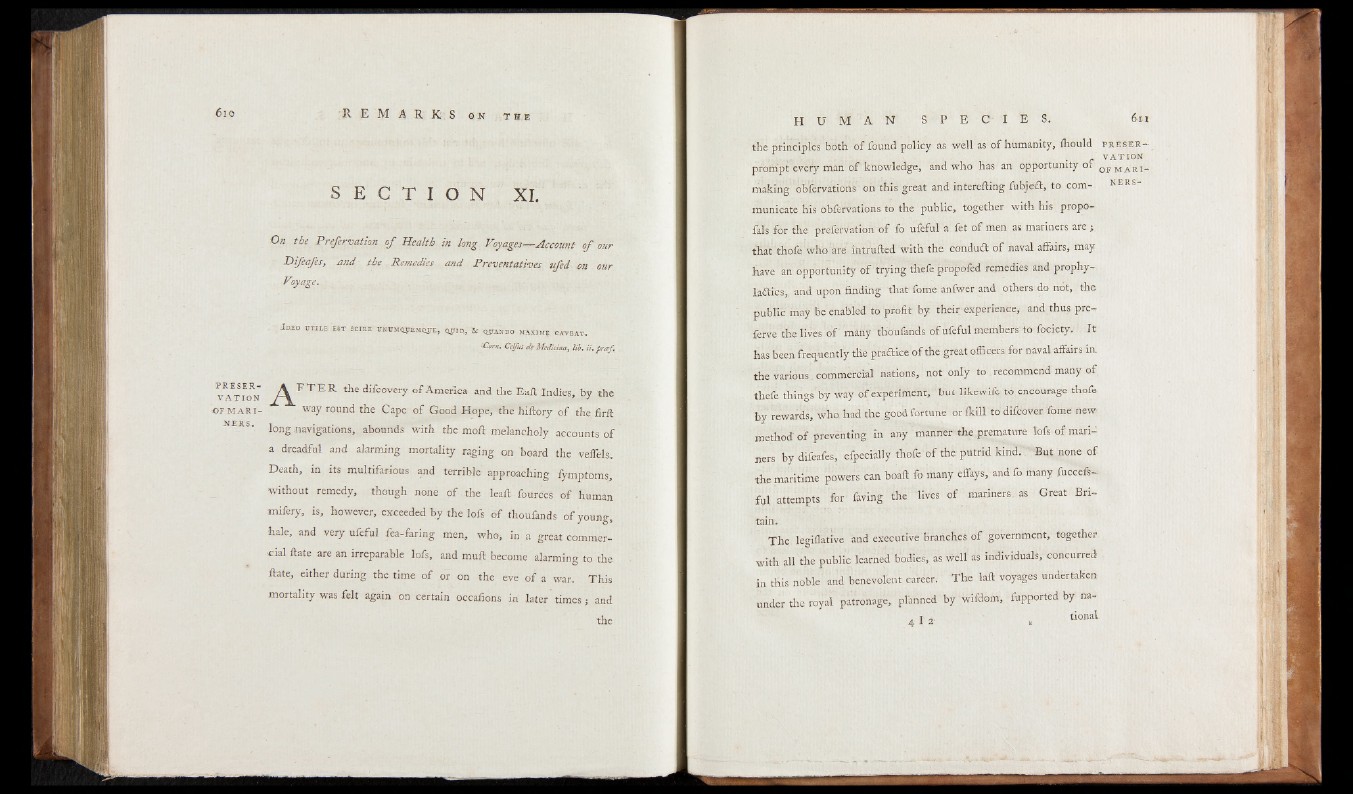
P R E S E R V
A T IO N
•OF M A R I NERS
.
S E C T I O N XI.
On the Prefervation of Health in long Voyages— Account of our
Difeajis, and the Remedies and Preventative* ufed on our
Voyage. : ,
JOTO UTILE E S I SCIEE UN-UMCLPEMejJE, QJflD, & QJTANDO MAXIME CAVEAT .
•Corn, Cclfus de Medicina} lib . ii, p r& f.
AF T E R the difcovery o f America and the Eaft Indies, by the
way round the Cape o f Good Hope, the hiftory o f the firft
long navigations, abounds with the moft melancholy accounts o f
a dreadful and alarming mortality raging on board the velfels.
Death, in its multifarious and terrible approaching lymptoms,
without remedy, though none o f the lead: fources. o f human
mifery, is, however, exceeded by the lofs o f thoufands o f young,
hale, and very ufeful Tea-faring men, who, in a great commercial
Hate are an irreparable lofs, and mud: become alarming to the
date, either during the time o f or on the eve o f a war. This
mortality was felt again on certain occafioiss in later times; and
the
the principles both of found policy as well as of humanity, Ihould p r e s e r v
a t i o n
prompt every man o f knowledge, and who has an opportunity or 0f m a r i -
making obfervations' on this great and intereding fubjed, to com- n e r s
municate his obfervations to the public, together with his propo-
fals for the prefervation o f fo ufeful a fet o f men as mariners are
that thole who are intruded with the conduit o f naval affairs, may
have an opportunity o f trying thefe propoffed remedies and prophy-
ladles, and upon finding thatfome anfwer and others.do not,, the
public may be enabled to profit by their expericnce, and thus pre—
ferve the lives of' many thoufands o f ufeful members to fociety. I t
has been frequently the pradice of the great officers for navalaffairs in.
the various , commercial nations,' not only to recommend many of
thefe thing/by way of'experiihent, but likewife to encourage thofe
by rewards, who had the good fortune or Ikill. to difeover fome new
method' o f preventing, in any manner the premature lofs of mariners
by difeafes, efpecially thofe o f the putrid kind. But none of
the maritime powers can boad fo many effays, and fo many fiiccefs-
ful attempts for faring the lives of mariners, as Great Britain.
Th e legiflative and executive branches o f government, together,
with all the public learned bodies, as well as individuals,- concurred
in this noble and benevolent career. Th e lad voyages undertaken
under the royal patronage, planned by wifdom, fupported by na-
4 r 2‘ „ tional